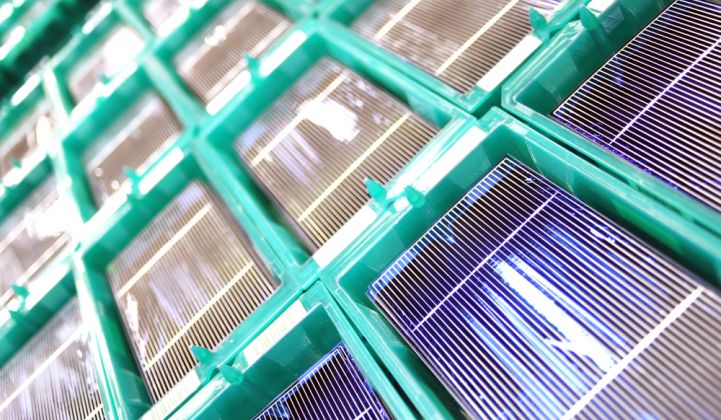JinkoSolar has confirmed plans to invest $50 million into a factory in Florida to supply NextEra Energy Resources with up to 2.75 gigawatts of solar modules over four years. It's the first move by a Chinese PV giant to invest in U.S. manufacturing in response to the Trump administration’s 30 percent tariff on imported solar products
The announcement makes official a plan that’s been reported on for months. JinkoSolar first said it was planning a U.S. factory in January, as part of a master solar module supply agreement with an unnamed U.S. counterparty to provide around 1.75 gigawatts of high-efficiency solar modules over three years.
The search for possible locations for the factory quickly zeroed in on Jacksonville, Florida, where the city council had approved $24.2 million in incentives to attract an unknown foreign manufacturer to build a $410 million factory, dubbed "Project Volt.”
And NextEra Energy Resources, operator of more than 2,100 megawatts of utility-scale PV and owner of utility Florida Power & Light, which has plans for thousands of megawatts' worth of solar projects, was quickly named the likely counterparty.
These details were confirmed in JinkoSolar’s announcement this week, although the $50 million in investment has decreased from earlier reported figures, which had ranged from $120 million to $410 million.
JinkoSolar is the first Chinese manufacturer to cement plans to invest in U.S. manufacturing in the wake of Trump's tariffs. But others are reported to be considering the move.
United Renewable Energy, a vertically integrated PV maker formed by the combination of Taiwan-based solar cell manufacturers Gintech Energy, Solartech Energy and Neo Solar Power, is also making plans to launch a U.S. module factory, although details remain unclear. Other foreign solar manufacturers have long been weighing the option of U.S. manufacturing in the face of impending tariffs, as GTM reported last fall.
JinkoSolar’s investment is made possible by a tariff exemption that allows for up to 2.5 gigawatts of solar cells per year to be assembled in the U.S. Meanwhile, U.S. solar manufacturer SunPower is seeking exclusions from tariffs for cells, panels and equipment made outside the country as well, and is warning of layoffs and reduced U.S. investment if they aren’t granted.
President Donald Trump claimed in February that the solar tariffs have led to "at least five" new solar manufacturing facilities being planned, as well as promising a broader renaissance for the U.S. solar industry. But as MJ Shiao, head of Americas for Wood Mackenzie, and Shayle Kann, senior adviser to GTM Research, wrote in an analysis piece, "many manufacturers will certainly explore building manufacturing capacity in the United States, but a combination of timing, market factors and the tariffs themselves will put an end to most of these schemes.”
Most economists and industry analysts have judged that the tariffs won't spark a U.S. solar manufacturing renaissance, with the negative effects of more expensive solar outweighing domestic advantages. Still, the tariffs have benefited certain U.S. module makers, namely First Solar, and existing U.S. module makers are starting to ramp up capacity and make new hires.




